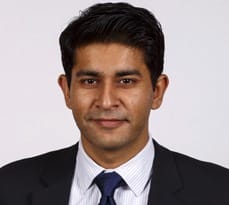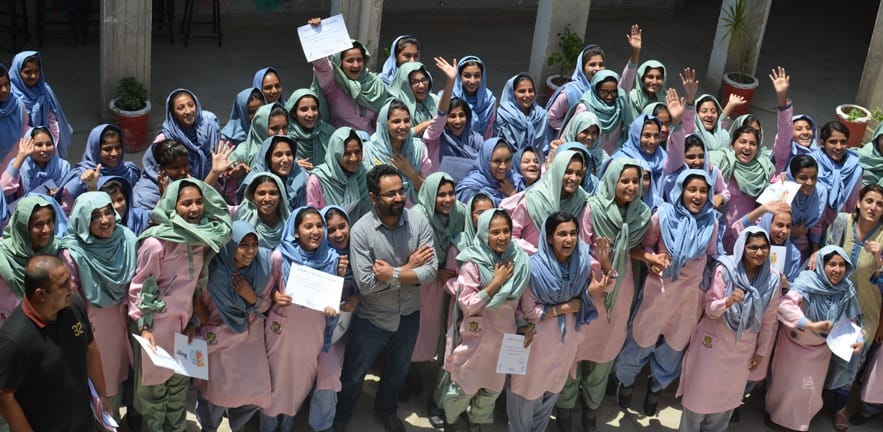
Ayyaz Ahmad (MBA 2014) has no time to celebrate his recent graduation from the MBA programme at Cambridge Judge Business School. After a couple days spent in the UK, he’s flying back to Pakistan to make sure everything is ready for the publication of his new book.
The book – ‘Partitioned Histories: The Other Side of Your Story’ – is the brainchild of Ayyaz and his friend Qasim Aslam, co-founders of The History Project. The book aims to show the history of India and Pakistan by placing 2 different narrative versions side by side.
The idea of The History Project started about 10 years ago when Ayyaz and Qasim met with some students from India and started discussing the role of history in both countries. They had experienced that both sides have a very different narrative being taught to them, backed by not necessarily reliable sources. “History is an important aspect of person’s life as it defines who you are,” says Ayyaz. “But the problem we discovered was that the way history was taught in India and Pakistan almost bred intolerance and a lack of trust in different cultures.”
With The History Project, the co-founders wanted to change this and bring a new way of thinking and opportunity for students to experience critical thinking and tolerance. Looking at textbooks taught to schoolchildren in India and Pakistan, made a lot of sense as they have a broad outreach, so the team placed the historical narratives from these textbooks side by side and took them to the students to read multiple perspectives of the story and form their own judgement.
“People don’t realise how this issue threatens our future generations, especially in Pakistan and India. So, it’s important to empower them with the right tools to identify and question bias,” says Ayyaz.
But it took quite a few years for the idea to crystallise and become a business venture. During his MBA studies Ayyaz met a few academics from Cambridge Judge, including Neil Stott and Kamal Munir, who pointed him in the right direction and provided some guidance. Also, his fellow students Yenson She and Ishaq Ahmad gave invaluable advice in marketing and finance. After his MBA studies Ayyaz joined the Cambridge Social Ventures programme (now part of Cambridge Judge Business School), where Belinda Bell has been providing The History Project business advice, coaching and regular mentoring sessions.
The pilot textbook project was launched in Mumbai a couple of years ago and has received a lot of interest. After months of further development and consultations the improved version was internationally launched at Harvard University this March. The team also developed a 5-week-long curriculum that Indian and Pakistani pupils can sign up to, and The History Project is working on a trainers’ course aiming to develop a programme for curriculum facilitators to help with delivery. “Our aim is to prepare the trainers so they can help pupils to ask questions, stimulate discussions and remain tolerant and uninformed,” says Ayyaz.
With just a few people on the team, Ayyaz and Qasim needed some extra hands to help with their projects. Today they have a network of more than 50 volunteers, ranging from academics and management consultants to designers and teachers who generously give their time for this good cause. But the biggest challenge at the moment is finance. “In 2013, we managed to get some funding to publish the pilot book. Now we’re mostly funding this ourselves including the publication of ‘Partitioned Histories’. We’ll need much more resources for curriculum and trainers’ courses. Also, we’d like to introduce scholarships for schools that can’t afford to buy the textbooks, so we’d really like to hear from anyone who’s interested and could help us with that”, says Ayyaz.


